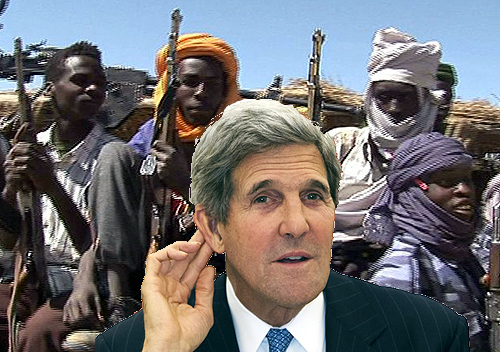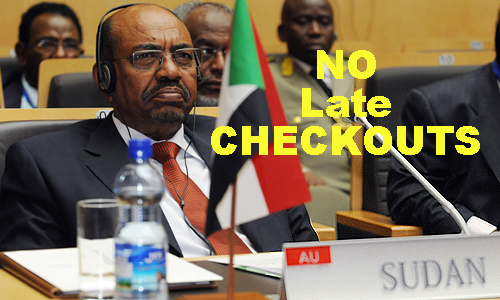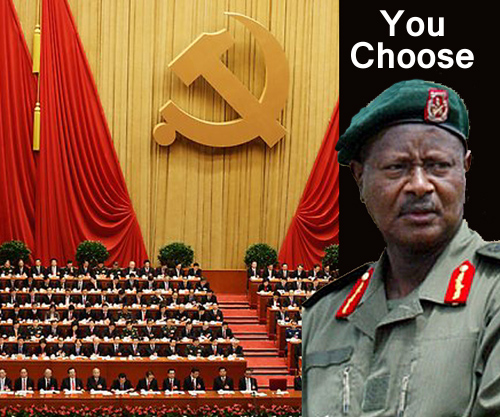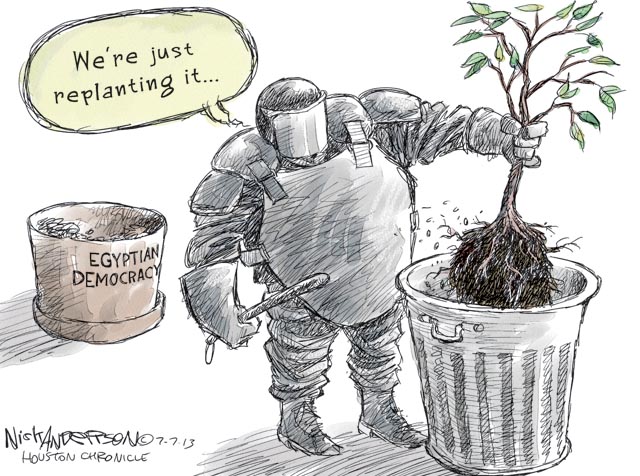 Add South Sudan, Central Africa and Libya to Iraq and Afghanistan and you have the most costly failure in human history to make undeveloped parts of the world in the image of its superpower.
Add South Sudan, Central Africa and Libya to Iraq and Afghanistan and you have the most costly failure in human history to make undeveloped parts of the world in the image of its superpower.
“Most costly” is an understatement. None of us can begin to imagine the 20 years of military hardware costs, personnel deployment costs, global policy orientation costs … except perhaps Eisenhower’s impugned “military-industrial” complex.
And even if that impugned component could be economically conceived as contributing to America’s growth, how do you economically measure the human tragedies? It’s arrogant to simply refer to American military casualties, since the human toll is a hundred, perhaps a thousand times, perhaps ten thousand times American injuries and deaths.
Yesterday, Assistant Secretary of State Linda Thomas-Greenfield told a Senate Foreign Relations Committee that South Sudan was “in danger of shattering.”
None of America’s experiments in democracy abroad was as promising as the South Sudan. Unlike elsewhere in Africa and the Middle East, America’s contribution to its generational civil war was mostly limited to diplomatic involvement.
Which was true of the other side as well. We supported the rebels. Russia and China supported the mother country, Sudan. And when Russia dared to send more than a Mig or two, Clinton bombed a Khartoum factory and Russia agreed to toe the unspoken diplomatic line to not arm the factions in the war.
So the war went on and on and on, very much like Darfur continues in the western Sudan, today. Rather than planes from Russia and tanks from the U.S., guns and hand-held missiles came from arms dealers in Jamaica that had mastered the insecure arsenal of the downfall of the Soviet Union. That wasn’t good, but it kept the war at a lower grade.
The emergence of the new South Sudan nation was a joy to the world, and especially to America. Politicians and celebrities all took credit. Although landlocked, the country’s potential was uniquely good, because it sat on so much oil, because so much of its land was unpopulated and fertile, and because its long civil war had leaders ready to go.
What happened?
Two things. First, democracy. Second, tanks.
DEMOCRACY
It’s one thing to nuke Afghanistan because its leaders bombed the World Trade Center. It’s quite another to suppose you can remake that part of the world in your own image.
We are learning again and again that America’s form of government — indeed lifeways, altogether – doesn’t work in the undeveloped world.
There are dozens of fundamental reasons why. But consider just this: America itself has had constant and serious problems with implementing its own democracy literally from the getgo.
We’ve mastered democracy, perhaps. But from Congressional gridlock to politicians’ lies to the uncertainty in counting votes to the complexities of voting at all … these are complicated, intricate problems created, analyzed and remedied by very modern and often high tech solutions.
I can blithely mention the “unimagined cost” of our mistakes, but even the carefully imagined costs of mistakes in the South Sudan result in that country’s own immediate deaths and destructions.
In America our mistakes are often manifest far from our shores. Not in places like the South Sudan. There is a simple line from a politician’s corrupt actions to the deaths of thousands of his fellow countrymen.
Writing today in African Arguments, Andreas Hirblinger dissects what’s left of South Sudan’s constitution and government and shows that little is left but the authority of the current “democratically elected” president.
Democracy doesn’t work in undeveloped places. This is a lesson the entire era of the “Arab Spring” is finally teaching us.
TANKS
Give two thugs AK47s and you turn a brawl into a war.
So pleased with their creation of the new democratic state in Africa, the western world began pouring in funds without strings.
What did that money buy? Communication systems from IBM? How about urban development consulting from J.D. Powers? No? Almost all the money went to Halliburton and it wasn’t just for catering services on oil rigs.
Not long after George Clooney and Hillary Clinton attended the unveiling democracy in Juba, the U.S. and its allies wittingly or not began arming South Sudan to the teeth.
Surprise! Huge new fighting began with The North. The war was supposed to have been over.
We need worldwide gun control. And that, because it’s so dearly linked to manufacturing and concomitant economic growth, is the harder problem.
Imagine suggesting to a country dominated by such an entity as the NRA that the UN should enforce a ban on all weapon transfers. Yet that is exactly what’s needed.
Fights are organic parts of any social development. Words don’t kill. Fistfights rarely kill. Give a newly emerged nation whose population is still mostly illiterate and has lived for generations by subsistence agricultural an arsenal of modern weapons …. well, I think anyone can understand this argument.
But will we do anything about it?
Maybe. I think Gates’ memoir, statements by Thomas-Greenfield and actions by Kerry have many lines to read between. I think America may be learning this critical lesson about democracy.
No chance we’ll stop the military-industrial complex. Eisenhower was spot on.
 Feel the epiphanous relationship of the disaster in The Sudan with Kaylin Gillis and Ralph Yarl.
Feel the epiphanous relationship of the disaster in The Sudan with Kaylin Gillis and Ralph Yarl.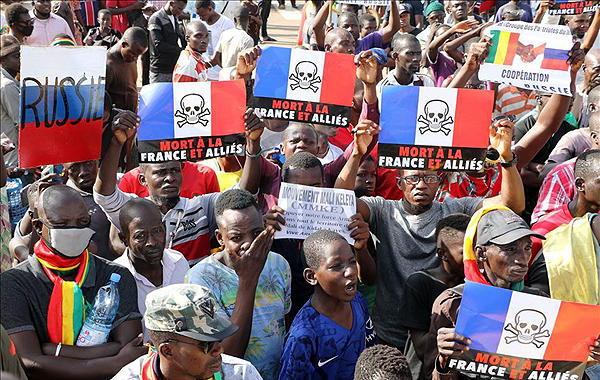 Western fixation with terrorism at the expense of poverty and basic human rights is finally coming home to roost in Africa.
Western fixation with terrorism at the expense of poverty and basic human rights is finally coming home to roost in Africa.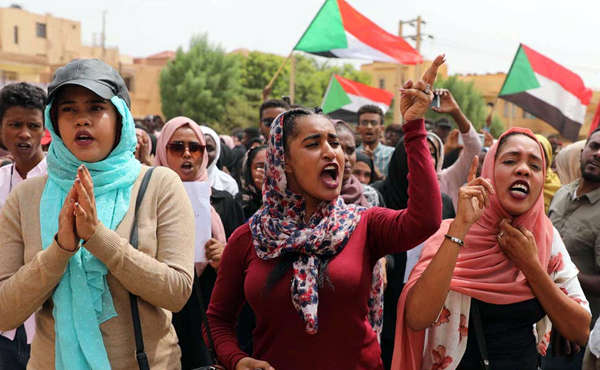 A few days ago in New York I sat down with someone deeply involved in The Sudan’s American diaspora, and I was stopped in my tracks when he affirmed with facile certainty that the diaspora thinks the current revolution will succeed.
A few days ago in New York I sat down with someone deeply involved in The Sudan’s American diaspora, and I was stopped in my tracks when he affirmed with facile certainty that the diaspora thinks the current revolution will succeed.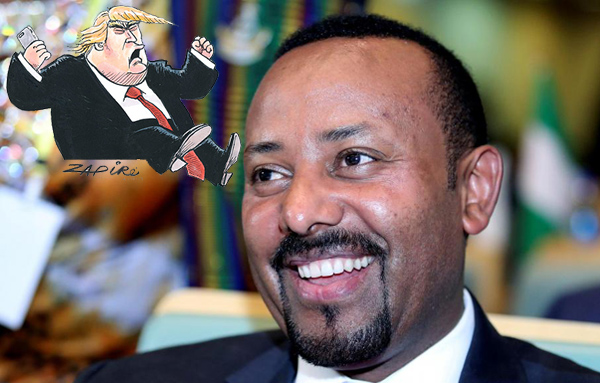 A moment of peace in a world of war. The Nobel Peace
A moment of peace in a world of war. The Nobel Peace 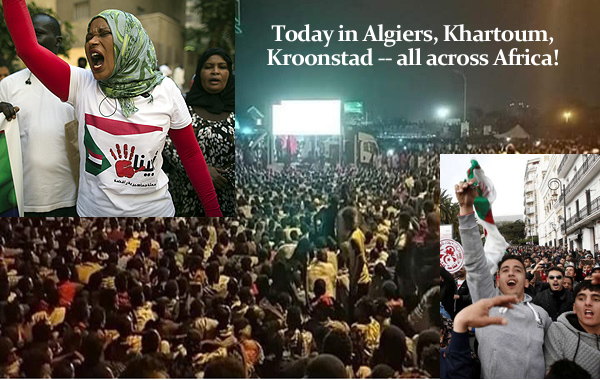 Elections, 0. Popular Uprisings, 3 (or more). Are we experiencing a new Arab Spring? Or better, a new Human Spring?
Elections, 0. Popular Uprisings, 3 (or more). Are we experiencing a new Arab Spring? Or better, a new Human Spring?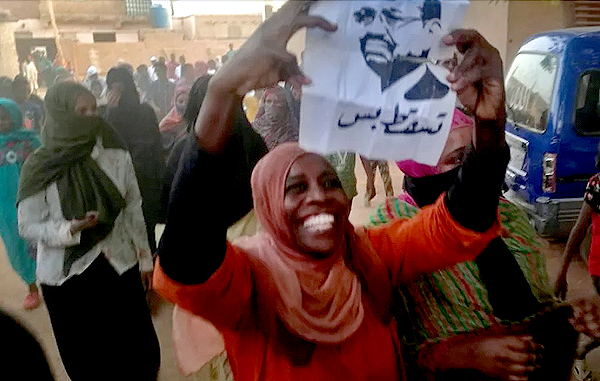 Facebook’s under a lot of negative scrutiny right now, but organized by Sudanese women it may be the weapon which finally ousts the current Sudanese dictator, Omar al-Bashir.
Facebook’s under a lot of negative scrutiny right now, but organized by Sudanese women it may be the weapon which finally ousts the current Sudanese dictator, Omar al-Bashir.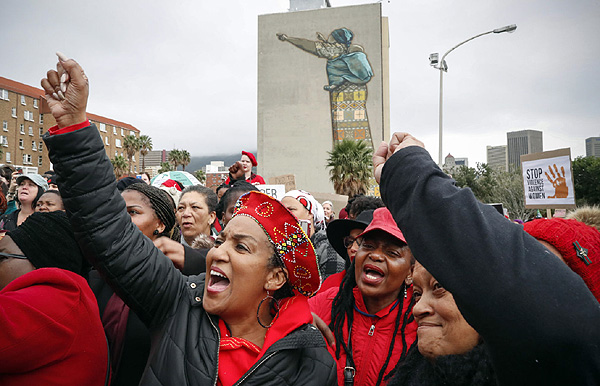 Women are having a disproportionately powerful effect on sub-Saharan African governments and politics. It provides insight to what’s happening in the whole world.
Women are having a disproportionately powerful effect on sub-Saharan African governments and politics. It provides insight to what’s happening in the whole world.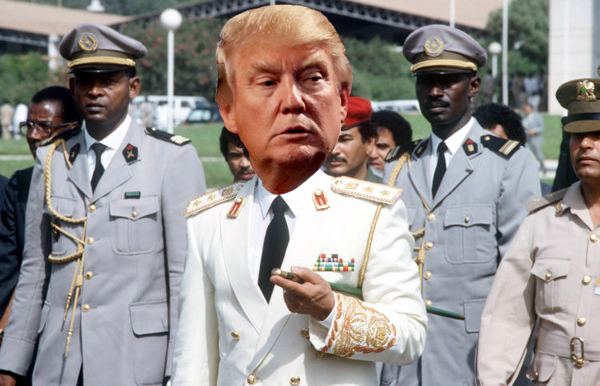 Many Africans view 2018 positively, a time when autocratic leaders solidified power and stability increased. For many African conservatives it was a good year.
Many Africans view 2018 positively, a time when autocratic leaders solidified power and stability increased. For many African conservatives it was a good year.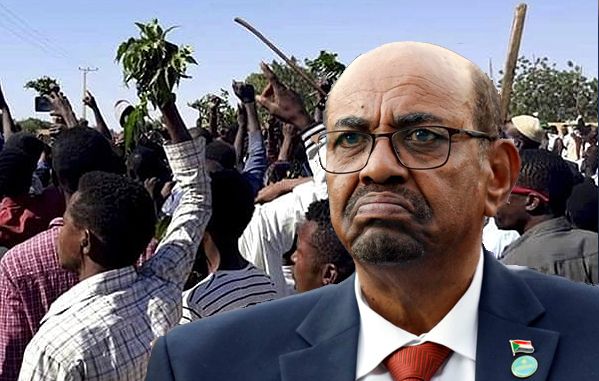 Sudan
Sudan 